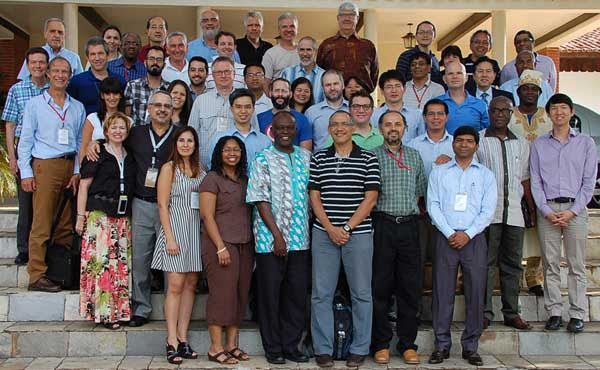Prosperity theology is 'false' and a 'parody of the grace of God', says Lausanne

The Lausanne Movement has warned that a "false" prosperity theology is gaining ground around the world, including in the West.
The warning follows a meeting of some 40 thinkers, pastors and practitioners from all continents near São Paulo at the start of the month to consider the nature of prosperity theology and its impact around the world.
Lausanne was clear to make a distinction between biblical preaching on money and finances, and forms of prosperity theology that "undermine the truth of the Gospel, parody the grace of God, and attribute a power to the preacher".
These forms of prosperity theology, the movement said, are a "travesty of the power of the Holy Spirit at work through the accurate preaching of the Scriptures".
False prosperity theology is being preached around the world, with World Vision International's Femi Adeleye telling the consultation that its spread is due in part to the influence of American televangelists.
"The false theology has found widespread appeal in the West," Lausanne said.
The consultation also concluded that there is "no one single 'prosperity theology'", and that "there can be a true biblical relationship between [God's] blessing and human prospering".
"It was also recognised ... that God does indeed bless in material ways," Lausanne said.
The consultation further noted that prosperity theology could create difficulties "not least for the biblically illiterate who are unable to calibrate the teaching they hear".
"While such excesses are more graphic in some places than others, these excesses bring insidious expressions of an inadequate doctrine of creation, of sin, and of grace which pervades the church in many nations," Lausanne said.
The consultation was hosted by Valdir Steuernagel, a member of the Lausanne Board of Directors, and Marcos Amado, Lausanne International Deputy Director for Latin America.
Lausanne III, held in Cape Town in 2010, committed the movement to engaging with major issues facing the church and the consultation builds on the progress made by the Lausanne Theology Working Group on the Prosperity Gospel at its meetings in Akropong, Ghana, from 2008 to 2009.
A damning statement issued in the wake of the Akropong meetings stated: "It is our overall view that the teachings of those who most vigorously promote the 'prosperity gospel' are false and gravely distorting of the Bible, that their practice is often unethical and un-Christlike, and that the impact on many churches is pastorally damaging, spiritually unhealthy, and not only offers no lasting hope, but may even deflect people from the message and means of eternal salvation. In such dimensions, it can be soberly described as a false gospel."
The conclusions of the consultation echo the Cape Town Commitment, the concluding document from Lausanne III, which refutes as "unbiblical the teaching that spiritual welfare can be measured in terms of material welfare, or that wealth is always a sign of God's blessing".
Michael Oh, Executive Director of the Lausanne Movement, drew from Romans 12 in the final address of the São Paulo consultation, as he called the church to humility, integrity and simplicity.
He stressed that the answer to false prosperity teaching did not lie in avoiding the topic of money.
"How are we to give? Toward our financial poverty that many might have spiritual wealth," he said.
"Leaders cannot shy away from talking about money simply from fears about the abuses of prosperity theology. We need to urge biblical, generous giving—sacrificial giving—or we too will be in error'."











